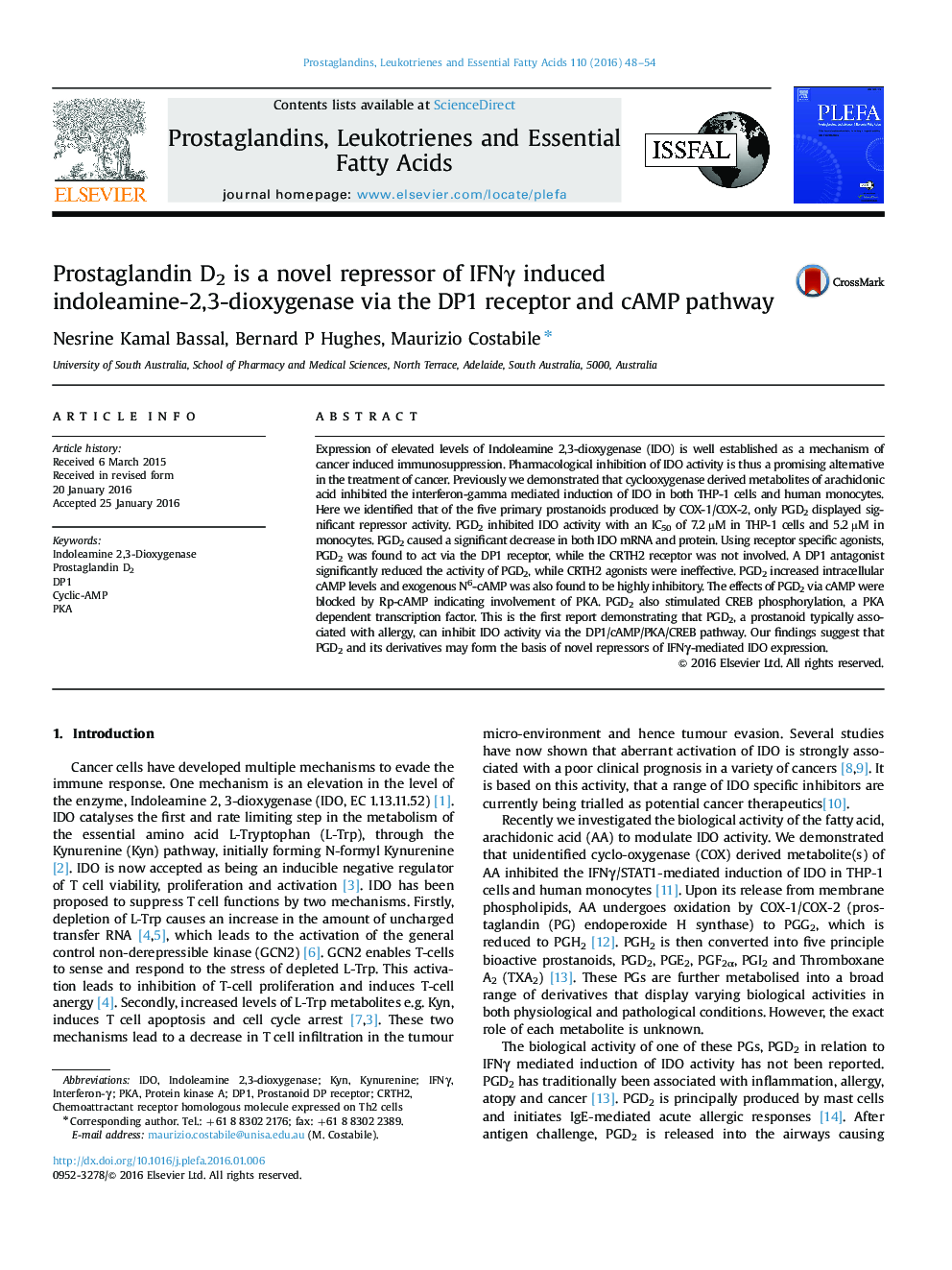| Article ID | Journal | Published Year | Pages | File Type |
|---|---|---|---|---|
| 2777450 | Prostaglandins, Leukotrienes and Essential Fatty Acids (PLEFA) | 2016 | 7 Pages |
Expression of elevated levels of Indoleamine 2,3-dioxygenase (IDO) is well established as a mechanism of cancer induced immunosuppression. Pharmacological inhibition of IDO activity is thus a promising alternative in the treatment of cancer. Previously we demonstrated that cyclooxygenase derived metabolites of arachidonic acid inhibited the interferon-gamma mediated induction of IDO in both THP-1 cells and human monocytes. Here we identified that of the five primary prostanoids produced by COX-1/COX-2, only PGD2 displayed significant repressor activity. PGD2 inhibited IDO activity with an IC50 of 7.2 µM in THP-1 cells and 5.2 µM in monocytes. PGD2 caused a significant decrease in both IDO mRNA and protein. Using receptor specific agonists, PGD2 was found to act via the DP1 receptor, while the CRTH2 receptor was not involved. A DP1 antagonist significantly reduced the activity of PGD2, while CRTH2 agonists were ineffective. PGD2 increased intracellular cAMP levels and exogenous N6-cAMP was also found to be highly inhibitory. The effects of PGD2 via cAMP were blocked by Rp-cAMP indicating involvement of PKA. PGD2 also stimulated CREB phosphorylation, a PKA dependent transcription factor. This is the first report demonstrating that PGD2, a prostanoid typically associated with allergy, can inhibit IDO activity via the DP1/cAMP/PKA/CREB pathway. Our findings suggest that PGD2 and its derivatives may form the basis of novel repressors of IFNγ-mediated IDO expression.
